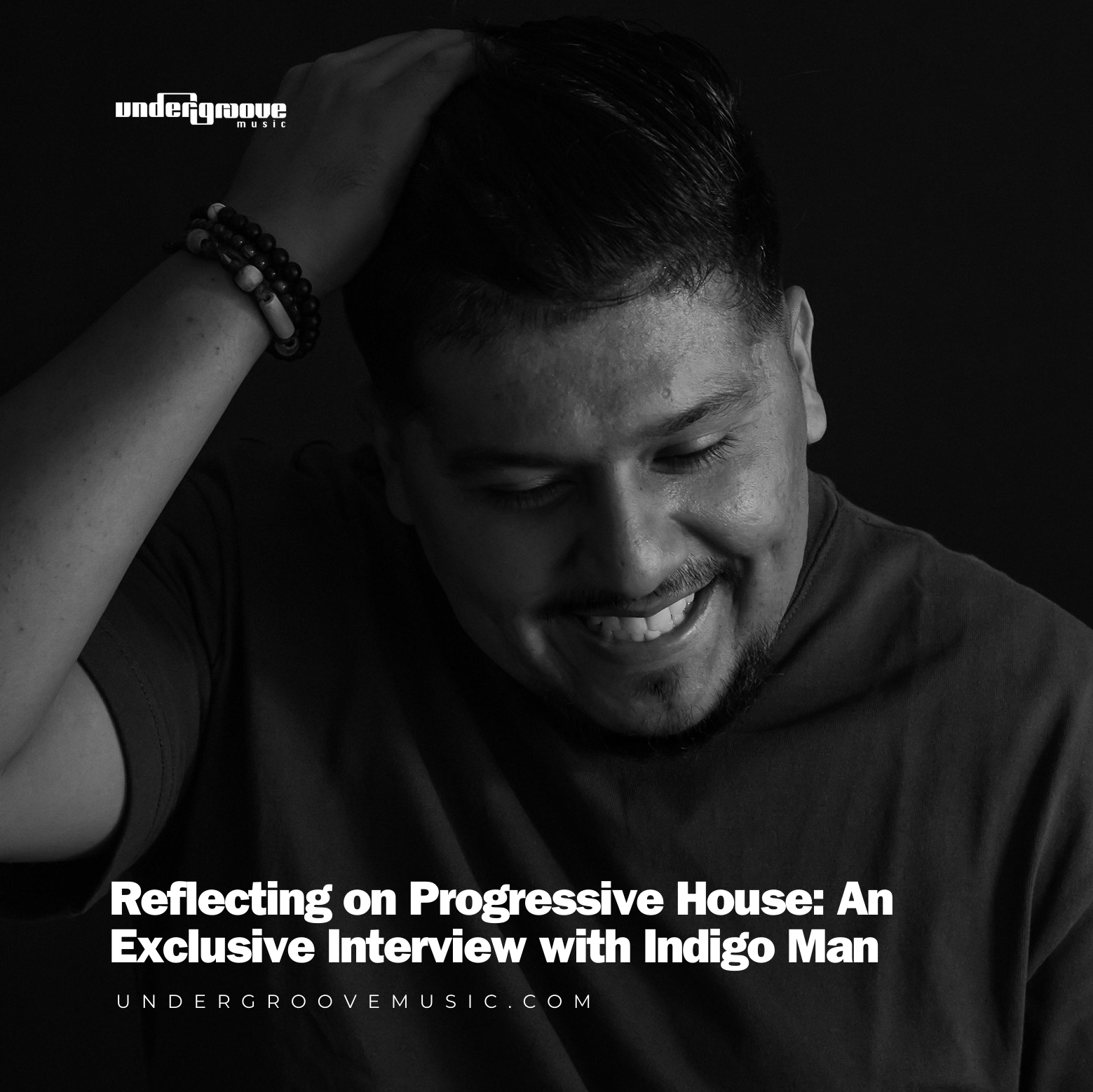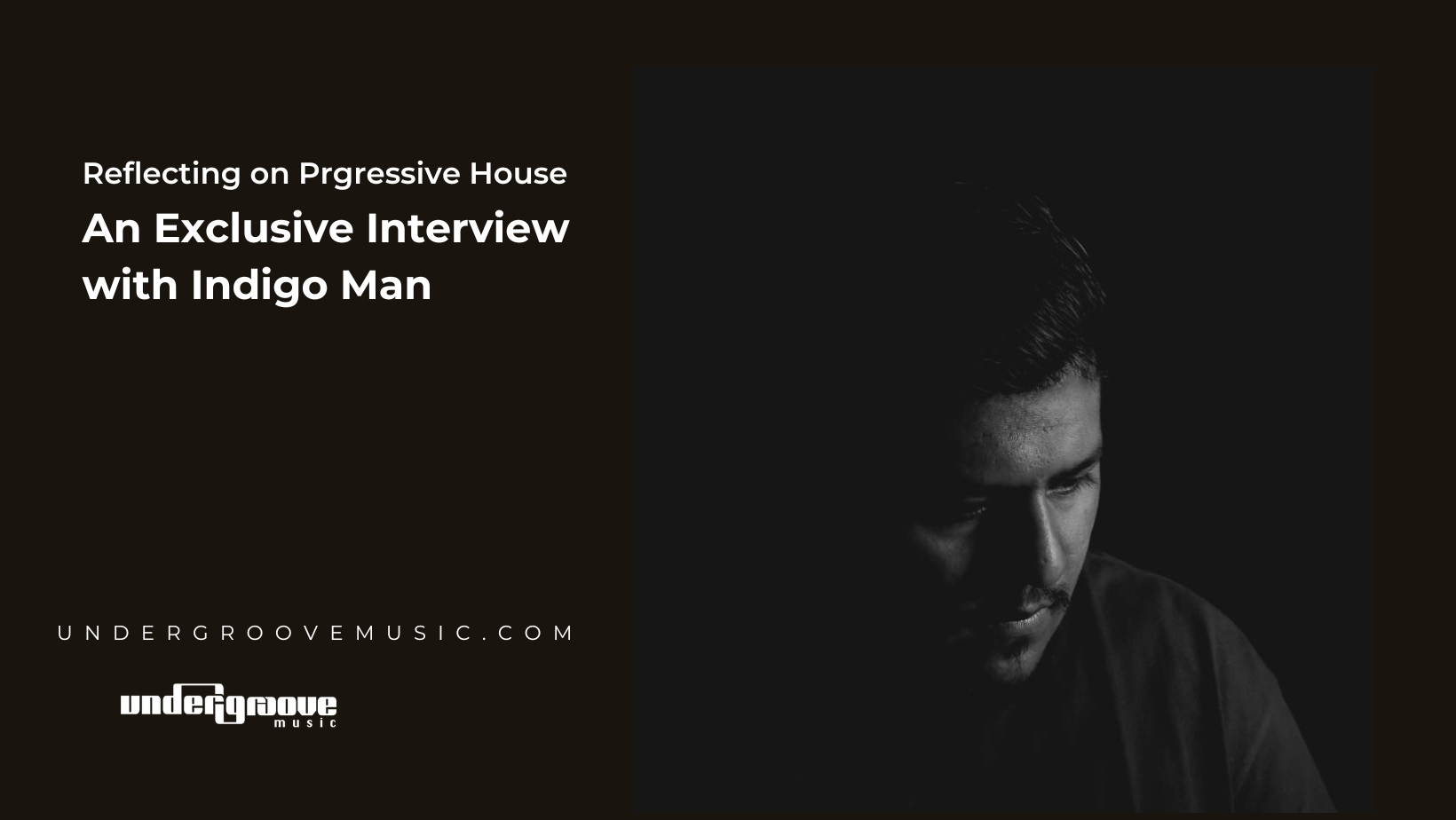Reflecting on Progressive House: An Exclusive Interview with Indigo Man
Hello, Undergroove Music enthusiasts! Today, we’re thrilled to embark on an insightful journey into the world of music, creativity, and passion. As fervent admirers of the artistry that shapes our musical landscapes, we’re excited to delve into the intricate and inspiring career of a prominent figure in the industry.
In this exclusive interview, we’re joined by none other than Indigo Man, the visionary artist from San Luis Potosi . Indigo Man, also known as Enrique Arredondo, has been making waves recently with his unique style and exceptional talent.
We’re thrilled to have Indigo Man on Undergroove Music! His recent remix of Nicholas Van Orton’s “Termite” has made waves in the progressive house scene. In this exclusive interview, we’ll dive deeper into the creative mind behind this incredible production. Join us on this musical journey!
Let’s delve into the fascinating world of Indigo Man as we explore his artistic journey, creative process, and invaluable insights into the music industry.

How long have you been producing electronic music?
I started in 2011, so I’ve been producing electronic music for 13 years now.
You have a unique and very particular style, which requires a great deal of work and time to develop. How long did it take you to develop your own style?
I would say about 8 years. I started out making Trance, then some Techno and Dub, and later I felt it was necessary to specialize in a certain sound.
I’ve always felt closely connected to Progressive House, seeing it as a distant cousin of classic Trance, with many similar elements. Achieving my current sound took a lot of resilience, study, and discipline.
I remember spending entire days in the studio. I still feel like I have a lot to learn, and I work to improve myself every day.
How would you describe your musical style?
Definitely energetic, and ideal for transitioning from discreet progressive to peak time on the dance floor. I use a lot of synthetic sounds, “broken” and effects that make you feel like something is out of control, but at the same time, having a characteristic progression of the style.
You have released an impressive number of tracks on prominent record labels throughout your career. How do you approach the creative and production process to maintain a constant flow of releases, and how do you select the labels you work with?
I definitely feel that the mental aspect is key. I’ve approached many studio sessions with low spirits and creativity doesn’t flow. Second, I feel that there’s a sort of “warm-up” before I start producing, and that “warm-up” for me consists of listening to tracks that I consider to be the top in the genre. This way, I visualize the type of arrangement, sounds, and story I can tell, obviously adapting it to my style.
As you mention, the flow of releases is important, however, I feel that over time it has to decrease with the aim of releasing fewer, but higher quality tracks. Now I’m going through that transition where I seek to release fewer tracks but with more quality. Previously, I set a goal, so to speak, of one track/remix per month and I fulfilled it. I’m fortunate to be very focused and determined, and that helps me.
With record labels, I consider it important to always listen to what they’re releasing. I look for nuances of my sound in the labels where I want to release. Obviously, I haven’t been able to sign with all the ones I’ve wanted, but I think that formula has been successful for me in most cases, but I’ve also had pleasant surprises. My advice here would be to stay true to your sound but be aware that labels seek to sound as “modern” as possible in their genre, so the style shouldn’t be a problem, but rather focus on the design and aesthetics of the track, and that it meets that standard.
From your early days in music to your current position, you’ve faced various challenges and triumphs. What advice would you share with emerging artists looking to follow in your footsteps in the music industry?
I consider my journey up to now to have been good and at times discreet. I’ve always wanted my music to be my calling card, and I haven’t done anything to go against that. It may go a little against how the industry is today, but if they had to follow in my footsteps I would say the following:
Strive every day in the studio. Remember that one thing is to know how to produce and another is to sound at the standard of what’s currently playing in the industry of your genre, this last one is going to take you many hours of study, discipline, and frustration. Prepare yourself mentally for that.
Don’t be distracted by immediate satisfactions and results. Social media tells us this every day, stay firm in your goal and convictions.
Surround yourself with people who share your lifestyle, goals, and values. This is key to being accompanied by the best allies in your career, and it will help you focus on your goals. Remember that you don’t have to please everyone. Everything comes if you stay true to yourself.
Remember that you’re in a profession of constant competition, and doing things well doesn’t mean you’ll be valued everywhere. Be smart to know what your market is and which battles you’re going to choose to fight. Many artists try to be valued everywhere, lose focus, and by this I mean to be aware of the type of person who is going to consume your music, the type of club/festival that is going to open doors for you, and what type of collaborators like your proposal.
FOLLOW US

